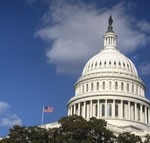
Three Democratic senators, including the chamber’s foremost critic of for-profit colleges, are sponsoring a bill that would bar federal student aid from being used in college programs that lack state licensing, even if the school has institutional accreditation.
Sen. Jeff Merkley (D-Ore.) this month joined Sen. Barbara Mikulski (D-Md.) and Sen. Tom Harkin (D-Iowa) in introducing the Protecting Students from Worthless Degrees Act, a law that would effectively eliminate a loophole that has allowed many colleges with programs that don’t have local licensing to reap the benefits of billions in federally-backed student loans.
Many for-profit colleges, with some of the nation’s most expansive online course offerings, attain regional and national accreditation but offer unlicensed courses and programs. Even if a student graduates with degrees from these unlicensed programs, local employers are hesitant to hire them.
Last month, former students from the for-profit Virginia College brought a lawsuit against the school because they claim the college was not upfront about licensing of its nursing program.
“Higher education should be a path to the American Dream, but that dream is shattered if when students graduate, they find that their degrees are worthless,” Merkley said. “A college that claims to prepare a student for a specific job should have the accreditation needed so that those degrees are actually worth something in the job market. It’s common sense to say that taxpayers have no place funding programs that hurt students more than they help.”
The bill would require colleges and universities to offer programs that comply with local established accreditation and licensing requirements, so that when a student leaves school, she won’t be at risk of lacking credentials for a local job.
Merkley said that once students realize their degrees won’t help them land a job after college, they go into deeper student debt and take out more loans to earn a properly-certified degree.
“It simply does not make sense for students to waste their federal financial aid and for veterans to use their hard-earned education benefits to attend a school that offers worthless degrees,” said Harkin, who recently released a report excoriating for-profit schools for a range of operational practices. “Most Americans would be outraged to learn that their tax dollars are going to education programs that do not meet the basic requirements needed for their graduates to enter their chosen profession.”
The bill could be considered by members of the Senate’s Committee on Health, Education, Labor, and Pensions, which Harkin chairs.
The proposed legislation has received broad support from veterans groups in recent weeks, since for-profit colleges with questionable licensing have often targeted service members with GI Bill benefits. The Military Officers Association of America, the Iraq and Afghanistan Veterans of America (IAVA), and the Student Veterans of America are among the veteran proponents who have backed the bill.
A survey released Aug. 3 by the National Consumer Law Center (NCLC) showed that nearly half of students who had defaulted on their school loans felt they should not have to pay back their loans largely because their education didn’t help them land a job after graduation.
Of the student respondents who said they should not have to pay back their student loans, 90 percent attended for-profit colleges, according to the NCLC. Eight in 10 respondents were unemployed.
The Virginia College graduates, many of them medical assisting students, were only made aware of the school’s lack of licensing after earning their degree and being turned down for jobs because they lacked basic experience.
Virginia College, the recipient of $292 million in federal student loans last year, has also been accused of targeting African Americans and women in local advertising campaigns, which included online efforts like pop-up ads. The school’s recruiters guided these prospective students toward hefty educational loans, some as high as $26,000 for a 15-month course in medical assistance at the college’s Jackson, Miss., campus.
The college’s YouTube channel, recently taken down, its website, and print and bus advertisements in and around Jackson mostly featured African-American women. Officials from the Mississippi Center for Justice said 80 percent of the school’s students are women and 90 percent are African American.
- Research: Social media has negative impact on academic performance - April 2, 2020
- Number 1: Social media has negative impact on academic performance - December 31, 2014
- 6 reasons campus networks must change - September 30, 2014

Comments are closed.